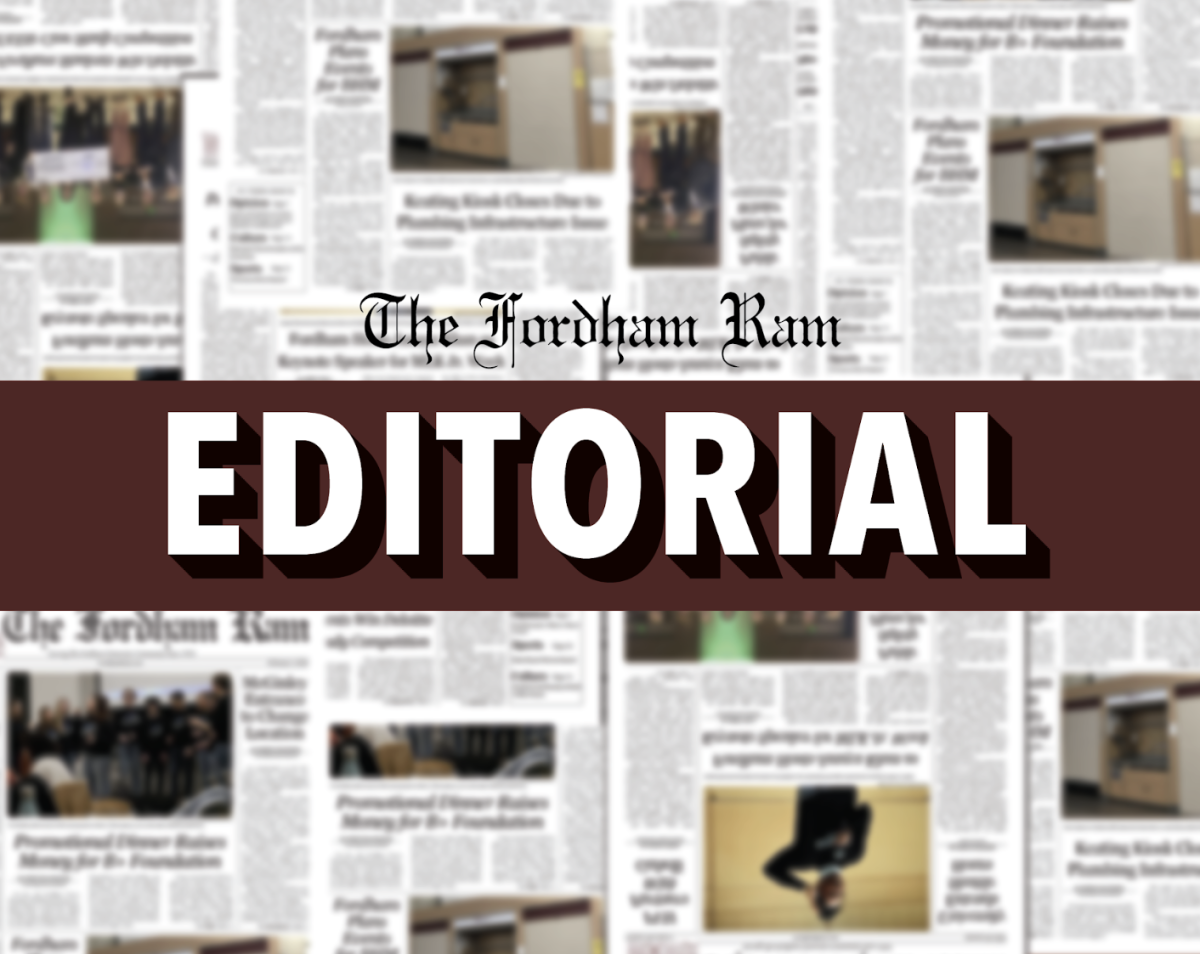For many of us, the beginning of the year is full of potential. Whatever our shortcomings were the previous year, we have another chance to challenge ourselves to change for the better. It’s why New Year’s resolutions are so popular. In this spirit, we at the Editorial Board believe the Fordham University administration should challenge themselves with their own New Year’s resolution: finding ways to enhance productive dialogue with the student body.
What is our definition of productive dialogue? It is when the administration actively listens to the concerns of Fordham students. While some in Fordham administration may feel like they do address students’ concerns, the existing venues of dialogue between the students and administration can feel constraining for students. Improving these avenues of dialogue is achievable. Fordham can deepen a culture of constructive conversation between the administration and student body by continuing some of its existing practices and expanding on others.
One current practice Fordham should continue is President Tania Tetlow’s meetings with the student press organizations at Fordham. During these meetings, reporters from The Fordham Ram and other organizations can ask Tetlow questions directly on topics, such as the 6% tuition hike and negotiations between the unions on campus. We believe that this is an example of productive dialogue because it allows students to engage directly with Tetlow and ask questions on issues that affect them. At the November meeting, she said she hopes to hold student press conferences once a semester. That is a good idea, and Tetlow can expand on this by announcing her commitment to it. A public commitment to the student body will display that Tetlow believes healthy engagement with students should be a top priority.
While the student press conferences are a positive example of productive dialogue, other areas of engagement need to be improved. The event we have in mind is the Student Life Council (SLC). SLC is a group “made up of students, faculty, and administrators” organized by Fordham Rose Hill’s Student Life Executive Board and the Office of the Dean of Students. The council’s stated purpose is to, among other things, “discuss the campus community with all members of the Fordham College at Rose Hill and Gabelli School of Business student body.” The discussions happen about once a month during semesters and are done in a “town hall” style. Students can attend these meetings and discuss issues that affect them at the university. For example, the subject of the meeting on Nov. 15 was possible changes to the guest policy pass policy in residence halls.
We think that the basic premise of these meetings is a good idea, but an element of SLC holds it back from its full potential: the time the meetings take place. SLC meetings are held on Wednesdays at 3 p.m. That time is not convenient for many students. On Wednesdays, students usually have fewer classes, but that does not mean they have an open schedule. Many students go to work or have internships during the day, which makes a meeting in the middle of the afternoon difficult to attend. If the university wants a more productive dialogue with the student body, they should move the SLC meetings to the evening so attending them is easier for the student body. While the SLC organizers may be reluctant to modify their schedule to have an evening meeting, we think the overall benefit of having more attendees would make the change worth it. Another issue with the meetings is students’ awareness of them. One of the main ways the university notifies students about the SLC meetings is through their email. However, it is easy for these emails to either be forgotten or ignored. If Fordham found more creative ways to advertise SLC, like making eye-catching advertisements, more students may attend, making the event more successful.
Improving productive dialogue is an achievable goal the university should strive to follow. But if productive dialogue is to work, students will also have to actively participate in it. If you can attend a SLC meeting, let your opinion be known. If both the Fordham administration and students agree to engage in productive dialogue, relationships between both groups will improve, and students will feel like they are respected and heard.





































































































































































































